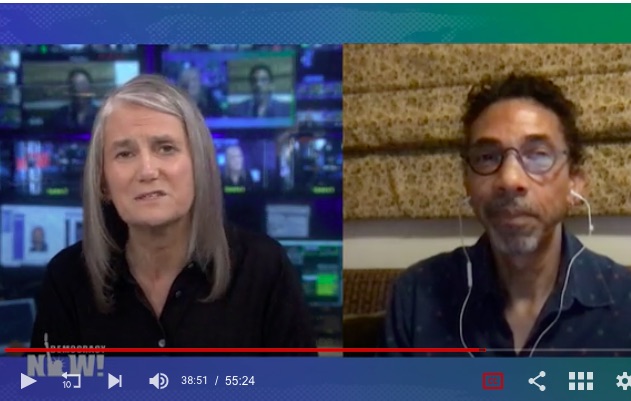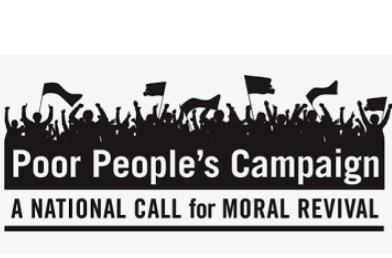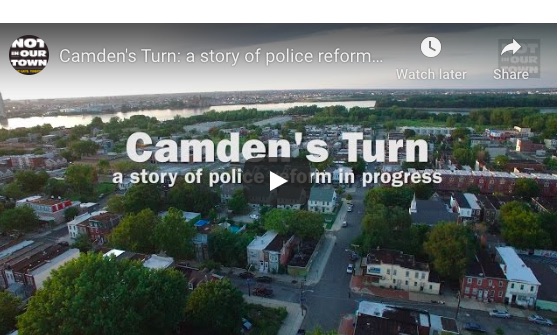This was a month of the reactivated struggle against racism.
It started in the United States with an uprising described as a “collective gasp for life” by the Poor People’s Campaign which continues the struggle for justice led by Martin Luther KIng, Jr. Their phrase refers to the last words of George Floyd,” choked and killed by a white police officer “viscerally reminiscent of the lynching photographs that were used to terrorize African-Americans for decades in this nation.”
Excessive force by the police, condemned by fundamental international human rights law and standards, is commonplace in the United States according to a recent study.
As described by Reuters, “tens of thousands of demonstrators amassed in Washington and other U.S. cities on Saturday [June 6] demanding an end to racism and brutality by law enforcement.” ““It feels like I get to be a part of history and a part of the group of people who are trying to change the world for everyone,” said one of the demonstrators.
Thousands took to the streets in Europeen and Asian cities demonstrating in support of the U.S. protests against police brutality, including London, Hamburg, Paris, Berlin, Brisbane, Sydney, Tokyo, Seoul and Bangkok,
The demonstrations in Australia linked the protest to the racist treatment of the aboriginal people in their country, where 432 aboriginals have died in police custody since 1991 without a single conviction. The racism is especially evident in the destruction of Aboriginal heritage sites for development projects. “The NSW Office of the Environment and Heritage shows that between June 2012 and June 2013 there were over 99 applications for the destruction of Aboriginal heritage sites for development purposes – all of which were approved.”
Central to the demonstrations has been the movement of Black Lives Matter, started in 2013 by three radical Black organizers — Alicia Garza, Patrisse Cullors, and Opal Tometi — in response to the acquittal of the murderer of 17 year old Trayvon Martin. Their project is now a member-led global network of more than 40 chapters that organize and build local power to intervene in violence inflicted on Black communities by the state and vigilantes.
As described by historian Robiin D. G. Kelley, in addition to Black Lives Matter, there have been many organizing efforts that have built a base for today’s protests. “These include people like Melina Abdullah, Charlene Carruthers of Black Youth Project 100, all the scholar activists who have been working on this question — Barbara Ransby, Kimberlé Crenshaw, Angela Davis, Ruth Wilson Gilmore — and then, before that, the Malcolm X Grassroots Movement, Copwatch, Dignity and Power, Critical Resistance, the African American Policy Forum. These were initiatives on the ground who did all this political education, all this organizing work — We Charge Genocide, Dream Defenders, the Rising Majority, Black Organizing for Leadership and Dignity, and also groups like SURJ, you know, [Showing] Up for Racial Justice, which deals with white racism.
Kelly concludes his interview with “And the real question now is whether or not this can be sustained.”
One of the means to sustain the movement is the mobilization in many U.S. communities and organizations to celebrate Juneteenth, the anniversary of the Emancipation Proclamation of Abraham Lincoln to put an end to slavery. It is now recognized in 47 states and the District of Columbia.
In the view of noted activist Cornel West , it is important to make the connection between U.S. violence abroad and at home. “When you sow the seeds of greed — domestically, inequality; globally, imperial tentacles, 800 military units abroad, violence and AFRICOM in Africa, supporting various regimes, dictatorial ones in Asia and so forth — there is a connection between the seeds that you sow of violence externally and internally.”
For more on the connection of racism to the culture of war, externally and internally, along with its historical roots, see this month’s blog for the culture of peace.
|
HUMAN RIGHTS |
FREE FLOW OF INFORMATION |
SUSTAINABLE DEVELOPMENT |
DEMOCRATIC PARTICIPATION |
|
EDUCATION FOR PEACE |
WOMEN’S EQUALITY |
TOLERANCE & SOLIDARITY |
DISARMAMENT & SECURITY |







